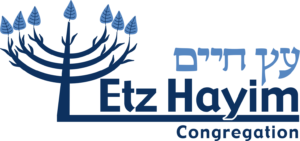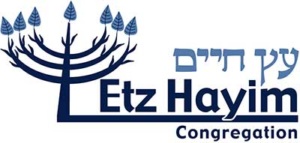On the second night of Pessah, we started counting the omer. The omer is a measure of the barley crop that was brought to the ancient Temple in Jerusalem beginning on Pessah. Barley is an early crop, and our ancestors would bring their offerings both to fulfill the commandment of tithing and to express acknowledgement and gratitude for the blessings they received. The counting of the Omer also connected, intimately, the holidays of Pessah and Shavuot. Since Shavuot does not have a specific date listed in the Torah (which only mentions that Shavuot comes seven weeks after Pessah), counting these 7 weeks connected our experience of leaving slavery behind and rejoicing in the experience of receiving the Torah. We move from a space where we had no choices and no opportunity to rest to receiving the document that defines our relationship with the Divine through the give and take of discussion and interpretation.
Jewish mystics interpreted this period as one of spiritual purification. In order to receive the Torah fully and with open hearts in Shavuot, we have to shed the vestiges of our slavery to things and events that do not give us the freedom to live in relationship with God. The Jewish mystics envisioned a system where, through a grid of the seven lower sefirot (emanations of God’s energy according to the kabbalah), we would examine different aspects of our lives. The seven lower sefirot are Hessed (love, kindness, loyalty to covenant), G’vurah (judgment, power, strength), Tiferet (harmony, beauty, mercy), Netzah (time, eternity, victory), Hod (glory, majesty, splendor), Yessod (foundation, connection), and Malhut (sometimes also referred as Shehinah, meaning presence, sovereignty, and service). Every week of the seven is dominated by one of the aspects, and every day we combine one of the aspects with that main aspect of the week. This first week is all about different aspects of Hessed. We examine the many dimensions of love, kindness, and loyalty in our romantic, familial, and friendship relationships, as well as our openness to love and be loved. And every day we examine the influence of the other sefirot on the weekly leading sefirah. Today, in the fifth day of the counting of the omer, we meditate on the effects of Hod on Hessed. How does glory, majesty, and splendor influence love, kindness, and loyalty to a covenant? One of the exercises we can do today is to think about how the splendor of special occasions and events, such as the birth of a child, witnessing as the first flower fully reveals its scent and color, or a profound encounter with another human being can influence our experience of love. I believe that when we allow hod to permeate our actions we can feel an opening of our hearts that radiates love and kindness to all creation, propelling us to re-commit to our covenant with God. And I also believe that when we allow ourselves to go through life open to the glory and majesty of this world, we experience the awe of radical amazement (to borrow A.J. Heschel’s expression). The world we live in is filled with splendor, glory, and majesty. It is also filled with love, with kindness, and a respect for the dignity of all creatures created by God. In this fifth day of the omer counting, I hope we all are able to focus our energy in spreading love because we are filled with acknowledgement of and gratitude for the amazing world in which we live.
For the rest of the sefirah, we can take a few minutes every day to examine the interconnectedness of these different Divine attributes, and let the feelings that arise from our meditation permeate our actions for the day. Tonight, as we begin the sixth day of the count, we examine how yessod influences hessed. And tomorrow night we will examine how malkhut influences hessed. As Pessah comes to a close, on Thursday night, we will move into the aspect of Gevurah. We start the second week of the counting examining how love influences our judgment, or maybe the need for balancing love and judgment. Tonight, we start the last two days of Pessah, which are also holy days. I wish you a loving end for Pessach. Although Pessah ends at 8:31 pm this coming Thursday, I remind you to wait until 9:00pm to eat from the hametz that you sold to me before the beginning of the holiday.
Hag Sameach!
Rabbi Lia Bass


